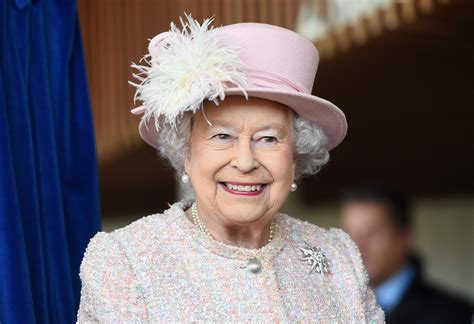Explore the early life, reign, impact on society, diplomatic relations, and legacy of Queen Elizabeth. Discover her influential role in history.
The Early Life of Queen Elizabeth
Contents
Queen Elizabeth I was born on September 7, 1533, at Greenwich Palace in London, England. She was the daughter of King Henry VIII and his second wife, Anne Boleyn. Elizabeth’s early life was full of turmoil and uncertainty. When she was just two years old, her mother was executed on charges of adultery and treason, and her father declared her illegitimate.
Despite these hardships, Elizabeth received a good education and was known for her intelligence and strong will. She was fluent in several languages, including Latin and Greek, and also studied theology, history, and rhetoric. Her education was overseen by a series of tutors, including the renowned scholar, Roger Ascham.
Elizabeth’s early years were also marked by political instability, as her father married and divorced several women in his quest for a male heir. Elizabeth’s position in the line of succession fluctuated as a result, and she lived in fear for her own safety and well-being. However, her fortunes changed dramatically when her half-sister, Mary I, ascended to the throne in 1553.
During Mary’s reign, Elizabeth faced suspicion and danger due to her Protestant faith, as Mary was a devout Catholic. She was even imprisoned in the Tower of London for a brief period. However, when Mary died in 1558, Elizabeth became Queen of England, marking the beginning of a new chapter in her life.
Queen Elizabeth’s Reign as Monarch
Queen Elizabeth I, also known as the Virgin Queen, ascended to the throne in 1558 after the death of her half-sister, Queen Mary. Her reign as monarch lasted for an impressive 45 years, making her one of the longest-reigning monarchs in English history. Throughout her rule, she faced numerous challenges, both internally and externally, but managed to consolidate power and bring about a period of stability and prosperity known as the Elizabethan era.
One of the key factors that contributed to Queen Elizabeth’s successful reign was her ability to navigate the complexities of the religious and political landscape of her time. Upon her ascension, England was deeply divided by religious conflict between Catholics and Protestants. Elizabeth’s establishment of the Church of England as the state religion helped to quell the tensions and was a pivotal factor in unifying the country under her rule.
Queen Elizabeth’s reign is also characterized by the flowering of arts, culture, and exploration. The Elizabethan era is renowned for its contributions to literature, theater, and music, with playwrights such as William Shakespeare rising to prominence during this period. Furthermore, the era saw significant advancements in exploration, with figures like Sir Francis Drake circumnavigating the globe and establishing England as a formidable naval power.
In addition to her domestic achievements, Queen Elizabeth’s reign had a lasting impact on England’s position in international affairs. She successfully navigated diplomatic relations with other European powers, and her shrewd foreign policy allowed England to assert itself as a major player on the global stage. Her defeat of the Spanish Armada in 1588 is often cited as a defining moment of her reign and a testament to her leadership and strategic acumen.
Queen Elizabeth’s reign as monarch came to an end with her death in 1603, marking the conclusion of a remarkable chapter in English history. Her legacy as a strong and capable ruler, as well as her impact on the arts, culture, and global politics, continues to be celebrated and studied to this day.
Queen Elizabeth’s Impact on Society
Queen Elizabeth had a significant impact on society during her reign as monarch. Her policies and leadership style helped to shape the cultural, economic, and political landscape of England and beyond.
One of her most notable impacts on society was her support for the arts. During her reign, England experienced a flourishing of literature, drama, and music. This period, known as the Elizabethan era, produced some of the most iconic works in English literature, including the plays of William Shakespeare. Queen Elizabeth’s patronage of the arts helped to elevate the status of artists and creatives in society, and her support for cultural pursuits had a lasting impact on the cultural life of England.
In addition to her support for the arts, Queen Elizabeth also played a crucial role in promoting exploration and trade. Her support for voyages of discovery and the establishment of trade routes helped to fuel the growth of England as a global trading power. The resulting influx of wealth and resources from overseas trade had a transformative impact on society, leading to the growth of a prosperous merchant class and the expansion of economic opportunities for many.
Furthermore, Queen Elizabeth’s policies and initiatives had a lasting impact on social welfare. She was known for her efforts to address poverty and provide support for the less fortunate in society. Her Poor Laws, which provided for the care and relief of the poor, were an early form of social welfare policy that aimed to alleviate poverty and improve the lives of the most vulnerable members of society.
Overall, Queen Elizabeth’s impact on society was wide-reaching and enduring. Her support for the arts, promotion of exploration and trade, and efforts to address social welfare issues helped to shape the cultural, economic, and social fabric of England during her reign, leaving a lasting legacy that continues to be felt today.
Queen Elizabeth’s Diplomatic Relations
Throughout her reign as Queen, Queen Elizabeth I demonstrated remarkable prowess in managing diplomatic relations with foreign powers. She understood the vital importance of maintaining peaceful and constructive interactions with other countries in order to safeguard England’s security and prosperity.
One of her notable achievements in diplomatic relations was her ability to forge strong alliances with the Protestant states of Europe, such as the Dutch Republic and the Kingdom of Sweden, in order to counteract the influence of Catholic powers like Spain and France.
Queen Elizabeth also skillfully navigated the complex web of European politics during the period of religious conflict and power struggles, earning herself the reputation of a shrewd and strategic diplomat.
Her successful management of diplomatic relations was evident in her ability to avoid major military conflicts with other European powers, thus ensuring a period of relative stability and peace for England during her reign.
Overall, Queen Elizabeth’s diplomatic acumen played a crucial role in shaping England’s relations with other countries and solidifying its position as a significant player on the international stage during the Elizabethan era.
Queen Elizabeth’s Legacy and Influence
Queen Elizabeth’s legacy and influence have left a lasting impact on the world, shaping not only the history of England, but also the way in which monarchies are viewed and understood. Throughout her reign as queen, Elizabeth was able to successfully navigate the challenges and complexities of ruling a nation, leaving behind a legacy of strong leadership and resilience. Her influence on society, both within England and on an international scale, cannot be overstated, as she paved the way for future generations of leaders and world changers.
One of the key aspects of Queen Elizabeth’s legacy is her impact on the arts and culture. During her reign, England experienced a flourishing of literature, music, and theater, often referred to as the Elizabethan era. The works of renowned playwrights such as William Shakespeare were produced and performed during this time, contributing to the rich cultural tapestry of the period. Elizabeth’s patronage of the arts not only elevated England’s cultural standing, but also continues to influence artistic expression and creativity to this day.
Furthermore, Queen Elizabeth’s diplomatic relations with other nations had a long-lasting impact on global politics. Her skillful negotiation and strategic alliances helped to secure England’s position as a dominant player on the international stage. By fostering diplomatic ties with powerful nations such as Spain and the Netherlands, Elizabeth effectively navigated the complexities of European politics, leaving behind a legacy of diplomatic prowess and influence that continues to shape international relations.
Queen Elizabeth’s legacy also extends to her impact on gender roles and perceptions. As one of the most powerful female rulers in history, Elizabeth challenged traditional gender norms and expectations, demonstrating that women were capable of leading with strength and authority. Her reign proved that gender should not be a barrier to effective leadership, inspiring generations of women to pursue positions of power and influence.
In conclusion, Queen Elizabeth’s legacy and influence continue to reverberate through the annals of history, leaving an indelible mark on the world. Her leadership, patronage of the arts, diplomatic prowess, and impact on gender perceptions have all contributed to shaping the modern world in profound ways. As we reflect on her legacy, it becomes clear that Queen Elizabeth’s impact will be felt for generations to come.












